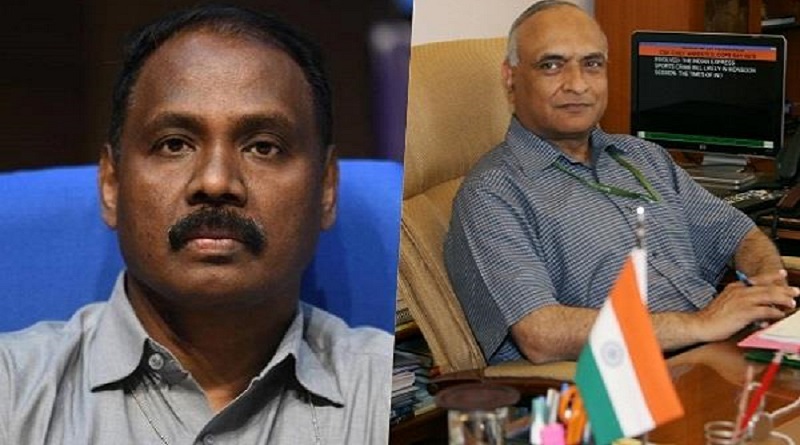31st October 2019 shall be written down as a red-letter day in the history of India, as two new Union Territories of Jammu & Kashmir and Ladakh have come into being. By the proclamation issued by the President of India, the state of Jammu and Kashmir, as existing under the arbitrary provisions of the former Articles 370 and 35 A, has ceased to exist. Following the abrogation of Article 370, the Central Government had announced in August 2019 that Jammu & Kashmir would be bifurcated into two centrally administered Union Territories – Jammu & Kashmir and Ladakh. Along with the Union Territories coming to existence, 31 October 2019 is also the date when Girish Chandra Murmu and RK Mathur have taken their posts officially as the Lieutenant Governors of the respective states. They shall replace the outgoing Lieutenant Governor of both the regions and the last Governor of the Jammu & Kashmir state, Satya Pal Malik. While Girish Chandra Murmu shall administer the Union Territory of Jammu & Kashmir, RK Mathur shall take charge of the newly created union territory of Ladakh. Interestingly, the date for the bifurcation is the same day as the birthday of Sardar Vallabh Bhai Patel, famously known as India’s Lauh Purush [Iron Man], also celebrated throughout the country as National Unity Day [Rashtriya Ekta Diwas].
But who are Girish Chandra Murmu and RK Mathur? Why their appointment is crucial to the future of the two regions as mentioned? It is important to know why both of them were appointed by the Modi government to administer newly created Union Territories. While Girish Chandra Murmu has been a trusted aide of PM Modi, RK Mathur has been an established IAS officer who has served in the echelons of the Central Government offices.
According to the J&K State Reorganization Act, the new UT of Jammu and Kashmir will have a legislature on the lines of Puducherry, while Ladakh will be a Union Territory without a legislature, like Chandigarh. Both the regions will be headed by two separate Lieutenant Governors (LG), who shall be sworn-in at separate functions to be held in Srinagar and Leh on Thursday. According to the provisions of the new Act, the Centre will be in direct control of the police and the law and order in Jammu and Kashmir from Thursday when it becomes a UT, while the land will be under the elected government there.
To begin with, Girish Chandra Murmu has been one of the few bureaucratic officers who have stayed faithful to Narendra Modi, even when he was the CM of Gujarat. An IAS officer from the 1985 batch, he has been a trusted Modi aide and has served him since 2008, when Narendra Modi was the CM of Gujarat. Murmu was the principal Secretary in the Chief Minister’s Office when Modi was at the helm in the state.
Due to retire next month from IAS, Girish Chandra Murmu has also held important portfolios in the finance ministry across departments such as financial services, revenue and expenditure. Considered to be a soft-spoken but decisive person, who is sharp in executing the decisions, Girish has enjoyed the confidence of PM Modi.
Even when Narendra Modi assumed the post of the Prime Minister, Girish Chandra Murmu followed him all the way to the Centre in 2015, when he joined the Ministry of Finance as a joint secretary. In Gujarat, he also held posts in the state home ministry under the then Home Minister and now central Home Minister, Amit Shah.
On the other hand, Radha Krishna Mathur, who has been given the charge of the newly created Union Territory of Ladakh, is a distinguished IAS officer who has served at many crucial positions in the Central Government. An alumnus of IIT Kanpur and an IAS officer of the 1977 batch, RK Mathur has previously served as the Defence Secretary from 2013 – 2015 and as the Chief Information Commissioner of India from 2016 – 2018.
This is not all. Apart from the above, RK Mathur has also served as Chief Secretary of Tripura, Union Defence Production Secretary, Union Micro, Small and Medium Enterprises Secretary, Special Secretary in Ministry of Defence, Development Commissioner in Ministry of Textiles, and as the Chief Enforcement Officer in Ministry of Textiles in the Union Government. Mathur also served as the Private Secretary, on separate occasions, to Ministers of External Affairs and Information and Broadcasting.
This is a crucial moment for the Central Government and the respective Lieutenant Governors, as they have been given the task of restoring peace to the troubled paradise of Jammu & Kashmir, apart from giving a new lease of life to the region of Ladakh, which was unjustly denied their dues for long. Given their profiles, PM Modi’s Central Government has certainly not chosen the wrong people. It is up to the two Lieutenant Governors to maintain the trust that the Central Government has in them.
